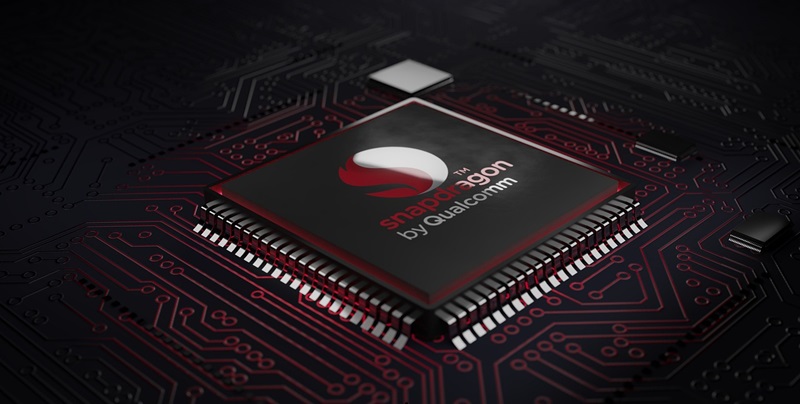Xiaomi is at the forefront of smartphone innovation with the launch of the Civi 4 series, a groundbreaking device leveraging the potent Qualcomm Snapdragon 8S Gen3 platform. This marks a new milestone for the intersection of performance and efficiency in mobile technology. The Snapdragon 8S Gen3 sets a new benchmark with its advanced capabilities, establishing Xiaomi as a leader in the industry. Moreover, the Civi 4 series breaks new ground by incorporating satellite communication technology, a feature that sets it apart in a fiercely competitive market. As global tech giants adapt to the rapidly evolving technological domain, Xiaomi’s initiative is a clear testament to their commitment to pioneering the future of smart connectivity. This development signifies a significant leap for Xiaomi and the industry at large, promising to redefine user expectations and experiences with smartphones.
The Snapdragon 8S Gen3 Frontier
Qualcomm’s Snapdragon 8S Gen3 platform is set to revolutionize the performance benchmarks of smartphones. Embedded with a Cortex-X4 prime core and complemented by Cortex-A720 high-performance cores, alongside energy-efficient Cortex-A710 cores—all on TSMC’s advanced 4nm process—the SoC defines leading-edge technology. The Adreno 735 GPU propels the graphics experience beyond conventional limits, clocking over 900 MHz, promising users a seamless and visually captivating experience. Xiaomi’s swift adoption of the Snapdragon 8S Gen3 signifies the brand’s unwavering commitment to introduce top-notch processing capabilities. The impending debut of the Civi 4 assures that Xiaomi continues to set the pace, dedicating its efforts to exceed user expectations and technological trends.
Tapping into Satellite Communications
Xiaomi is revolutionizing mobile tech by integrating satellite communication into its Civi 4 series, making this high-end feature more accessible and ensuring connectivity in remote areas. This strategic move positions Xiaomi not just as a performance leader but also as a connectivity innovator. The inclusion of the Snapdragon 8S Gen3 chipset delivers not only potent processing power but also improves battery longevity and thermal control, reflecting Xiaomi’s commitment to efficient and reliable smartphones. These advancements point to a future where users can expect their devices to handle extended use with ease, staying connected without the hassles of frequent charging or overheating. Xiaomi’s Civi 4 series is thus reshaping the standards for smartphone technology, marrying advanced communication capabilities with impressive efficiency in a device that can truly keep up with the demands of modern life.
Apple’s Strategic Pricing Adjustment
In response to the competitive dynamics of the smartphone market, Apple’s strategic pricing adjustments for the iPhone 15 series in China represent a decisive countermeasure. Apple’s recalibration of prices addresses a noticeable 24% drop in early 2024 sales, indicating a reshuffling of market positions favoring brands like Vivo, Huawei, and Honor. By reevaluating their pricing strategy, Apple seeks to entice cost-aware consumers back, meshing the allure of its premium reputation with newfound affordability. This approach is Apple’s bid to reclaim their leading market stance, wrestling with local brands for the attention of China’s tech-savvy consumer base.
Samsung’s Empowerment of Mid-Range Smartphones
Samsung is shaking up the mid-range smartphone sector with its Galaxy A55 and A35 models, aiming to democratize premium features for a wider audience. With notable specs like 12 GB RAM, long battery life, and an IP67 rating, these phones deliver top-tier experiences at a more accessible price. Beyond powerful specs, Samsung’s promise of four years of Android updates plus an extra year of security patches highlights a commitment to sustainable tech use. This strategy underscores a broader trend: high-end functionalities aren’t just for flagships anymore. Samsung is setting an industry standard with these offerings, ensuring that quality and enduring support are part of the mid-range consumer’s ownership experience. The Galaxy A55 and A35 are Samsung’s nod to a future where exceptional tech is common and devices are valued for their longevity.
The smartphone industry’s progress is relentless, with companies like Xiaomi at the forefront. By embedding the latest Snapdragon 8S Gen3 chip in their Civi 4 series, Xiaomi is democratizing high-end performance for the masses. As smartphones become more versatile, consumer expectations rise, pushing manufacturers to innovate continually.
This constant innovation is vital for the industry’s vibrancy, and Xiaomi’s use of cutting-edge technology exemplifies this. Meanwhile, Apple’s pricing strategies show adaptability in this highly competitive field. Together, these approaches reveal a market in perpetual flux, driven by consumer demand and technological breakthroughs. The story of mobile technology is far from over, as each brand competes to lead a race where the pace never slows, fueling an ever-expanding realm of mobile possibilities.

